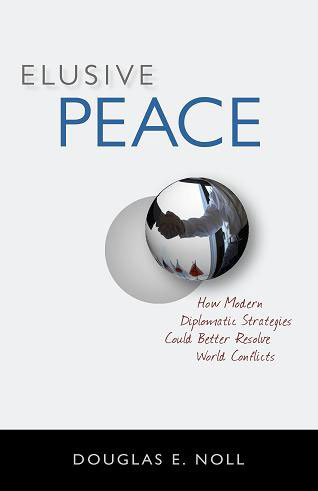The Occupy Wall St. protest movement is reminiscent of the social movements of the past. Beneath the headlines, however, there are deeper issues that deserve more thoughtful attention, including a consideration of the tension between distributive justice and the nature of capitalism. This tension, which is rarely, if ever, discussed, is at the core of the problem.
Distributive justice concerns how scarce resources are shared in a family, community, or society. Distributive justice has three components: equity, equality, and need.
Imagine we are in a clan 100,000 years ago. I go out one day and slay a woolly mammoth all by myself. I drag the carcass back to our encampment one hunk at a time. Around the fire that night, I get the first choice of wooly mammoth haunch. No one complains because I was the guy that brought home the bacon, so to speak.
This illustrates the first leg of the three-legged stool called distributive justice. It is about equity. Equity says that I should receive in proportion to what I contribute. If I contribute a lot, I should get a lot. If I do not contribute much, I should not get as much as the guy who contributed more.
Once I have my mammoth steak, all of the adults take their shares of the sizzling meat. We are all equal members of the clan and are entitled to equal shares of the meat. This illustrates the second leg of the distributive justice stool: Equality. Because we are equal members of the clan, we share equally. Being an equal member entitles me to an equal share of the group resources regardless of my contribution.
There is still some woolly mammoth meat cooking on the fire. Several of the adults cut off pieces and feed the children, the few who are sick, and the elders. This is the third leg of the stool: Need. In every group, there are members who cannot provide for themselves, but nevertheless have a claim on group resources. The young, the sick, and the elderly have a claim on the meat because of their need. Without the meat, they would starve. Because of their age or health, they cannot fend for themselves.
Distributive justice is therefore the delicate balance of equity, equality, and need. We each perceive that balance subjectively. Massive wars have been fought over perceived imbalances in equity, equality, and need. When someone claims unfairness around wealth, resources, or economic development, distributive justice is in play.
The Occupy Wall St. movement can be understood in the context of distributive justice as a massive feeling that the equation between equity, equality, and need is out of balance. The protesters feel that the corporate finance world has taken more than its fair share of resources, has set itself above the majority of society by garnering special tax breaks, bail outs, and de-regulation, and has failed to acknowledge and respond to the distributive justice demands of equality and need.
Capitalism and socialism are both mechanisms for attaining distributive justice. Capitalism emphasizes equity-you are rewarded based on your personal success. Socialism emphasizes equality and need-everyone gets a piece of the pie sufficient unto one’s self. Both mechanisms are deeply flawed if left unbalanced. Unrestrained capitalism leads to the kinds of distributive imbalances the Occupy Wall St. protesters are complaining about—the rich are getting richer while everyone else is suffering. Unrestrained socialism crushes the entrepreneurial behaviors needed to create wealth and leads to oppressive, repressive, and unproductive societies.
When conflicts arise over the distribution of resources, peacemakers ask the parties to explore the imbalances in the distributive justice equation. Solutions are found that help rebalance equity, equality, and need. In large social justice movements, however, this type of dialogue is impractical. Typically, the US government has had the responsibility to address large scale distributive inequity, inequality, and need through taxation, regulation, and redistribution policies. These policies have ebbed and flowed depending on economic conditions and demands of American society.
The problem today is that the US government is so polarized that it cannot act. This works to the advantage of the wealthy, who wish to see the status quo condition of distributive justice maintained. After all, it is the limited taxation and de-regulation of the financial industry that has brought about the huge aggregation of wealth on Wall St. Likewise, the wealthy would like to see re-distribution policies (Social Security and Medi-Care) deeply cut or eliminated.
Health care reform is a distributive justice policy designed to balance equality and need with the limited resources of the US health care system. Those who prefer equity argue vehemently against a national health care agenda. Those who are priced out of affordable health care argue just as vehemently for a system that treats people relatively equally and takes care of those in need. Both sides are right. The conflict is about what the balance should be.
Unfortunately, the political leadership in Washington, DC has no interest in finding compromise on basic distributive justice issues. As a result, a social protest movement has started and gained some momentum. If enough people find that the Occupy Wall St. movement resonates with their own sense of distributive injustice, the movement will translate into votes in 2012. Wise political leaders who value their positions should be taking note and not ignoring the demands to correct this fundamental sense of imbalance.
Douglas Noll, Lawyer Turned Peacemaker, is the author of Elusive Peace: How Modern Diplomatic Strategies Could Better Resolve World Conflicts (Prometheus Books 2011).



